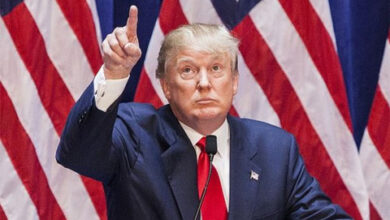U.S. and China March Closer To War
The Chinese ruling class has made a “regional alert” as the United States steps up military deployment in the region. Both war-mongering ruling classes are advancing in ways that could very well lead to a large-scale hot war.
Earlier in December, a U.S. Air Force general told Japan’s Nikkei newspaper that the U.S. military will make “significant progress” towards reclaiming the Tinian North airfield from overgrown jungle vegetation in the coming months, as part of a plan to disperse aircraft across the Indo-Pacific region as China’s missile threat grows.
“The United States continues to strengthen its Asia-Pacific deployments, this is full of a Cold War mindset,” the spokesperson, Wu Qian, said on Thursday. “Its goal is for its own selfish gains and to maintain its hegemony. Its nature is to stoke confrontation.”
All ruling classes have their own selfish goals, even China. If there’s a puppet on a throne, people everywhere are in danger.
According to a report by Al Jazeera, the U.S. views China as the biggest challenge to the Western-dominated international order, pointing to Beijing’s rapid military buildup – the biggest in peacetime history – as well as its claims over the self-governed island of Taiwan and in the East and South China Seas. The U.S. military’s so-called “freedom of navigation exercises” in the contested waterways near China are part of a push by the administration of President Joe Biden to deepen and expand its diplomatic and military presence in the Asia Pacific.
Chinese President Xi Jinping said the U.S. campaign has “brought unprecedented severe challenges to our country’s development”, and in a speech in March called on his countrymen to “dare to fight”. His former Defence Minister Li Shangfu, during an address at the Shangri-La Dialogue in Singapore, condemned what he called Washington’s “Cold War mentality”, and said Beijing would not be intimidated and would “resolutely safeguard national sovereignty and territorial integrity, regardless of any cost”.
“This is a competition over what the rules-based order looks like, at least in Asia,” Gregory Poling, director of the Southeast Asia Program at the Center for Strategic and International Studies, told Al Jazeera. “It’s about whether or not the existing global rules continue to apply to Asia or whether China gets to carve out a huge area of exemption in which its preferred rules predominate.
Read the full article here






